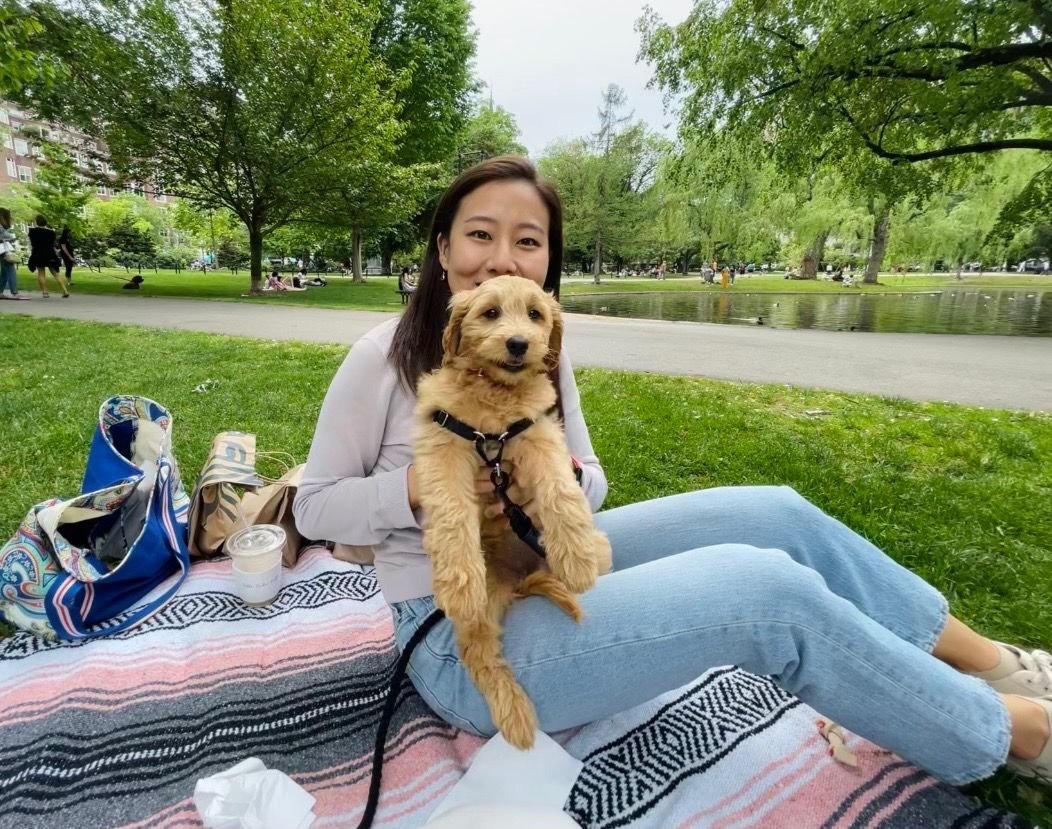
Trauma-Informed Therapy for BIPOC, Queer, Trans, and Neurodivergent Communities
Culturally responsive care across Massachusetts for those navigating complex trauma, PTSD, and identity-based harm
Honoring Wounds That Were Never Meant to Be Carried Alone
Many people learn to live with trauma by numbing, staying busy, staying quiet, or taking care of everyone but themselves. These are not failures of resilience. They are strategies the body and mind developed in response to harm, often in environments where safety was not a given.
What may look like overreacting, shutting down, or being “too sensitive” is often the body’s way of holding stories that were never allowed to be named. These responses: ‘fight’, ‘flight’, ‘freeze’, ‘fawn’, are not signs of weakness, but evidence of survival in the face of overwhelming experiences.
Here, we make space for the parts of you that had to carry too much for too long. Rather than pushing you to retell everything or “move on,” we begin with slowness, curiosity, and consent. We understand that trauma is not only personal but shaped by structural forces such as racism, displacement, transphobia, and silence that leave lasting imprints on the body and nervous system.
For those navigating complex trauma, PTSD, or identity-based harm, therapy becomes a space to feel seen without being pathologized. A space to reconnect with the parts of you that learned to protect, adapt, or disappear. A space to imagine healing that does not ask you to return to who you were, but allows you to become who you are.
You Were Not Meant to Carry It Alone or in Silence
There is nothing broken about the ways your body remembered what happened.
Trauma is not just what occurred, but how it was held, silenced, or dismissed. For many of us raised in environments shaped by colonization, migration, or emotional neglect, there was no room to speak of hurt. Pain became something to carry quietly. To survive, we learned to shut down, over-function, lash out, or disappear. These were not failures, but forms of wisdom, built in the body.
What gets labeled as overreaction or avoidance may be a nervous system doing its best to keep you safe. Flashbacks, hypervigilance, numbness, or chronic guilt are not just symptoms to treat but messages from a self that was never fully witnessed. They are echoes of what had to be stored away when there was no safety to feel it.
Living with trauma can mean grieving the years lost to fear, the relationships that felt distant, or the parts of yourself that had to hide. It can mean learning to trust again in a world that once proved untrustworthy. There is no right timeline for this.
Healing begins not by forcing the story out, but by slowly reclaiming a felt sense of safety. You deserve care that meets your pace, honors your lineage of survival, and treats your symptoms not as flaws, but as protectors waiting to rest.
Who We Have Experience Working With
Our clinicians have supported people navigating inner experiences shaped by:
·Hypervigilance, startle responses, or difficulty feeling safe in calm moments
Numbness, dissociation, or disconnection from body or surroundings
Guilt, shame, or self-blame after surviving harm or abuse
Fluctuating memory, time distortion, or confusion around what happened
Deep grief for parts of life interrupted, relationships lost, or innocence taken
Cultural, gendered, or historical trauma that shaped your sense of safety and belonging
We approach these experiences not as symptoms to be fixed but as survival responses that made sense at the time.
Some of Our Providers Specializing in Trauma Care for BIPOC, Queer, Trans, and Neurodivergent Clients
We’ve highlighted a few of our clinicians with lived and professional experience supporting complex trauma, PTSD, and identity-based harm. Our team includes therapists who understand how trauma is shaped by systems of oppression, family dynamics, migration, religion, and survival.
If you’re seeking care that honors your story without pathologizing your identity, we’ll help you find someone who meets you with attunement, not assumption. Whether you’re exploring dissociation, shame, hypervigilance, grief, or fragmented memory, we’re here to walk with you at your own pace.
Haerim Ma (She/Her) brings a thoughtful, culturally grounded approach to therapy rooted in trauma-informed and relational care. As a Korean American therapist who immigrated as a teenager, she supports teens and adults navigating anxiety, depression, identity exploration, and the complex impacts of trauma. Her work draws from psychodynamic and evidence-based modalities, always adapted with care and collaboration. Haerim creates space to explore emotional pain, boundaries, and belonging at your own pace, especially for those who have struggled to name their experiences across cultures or systems. She sees healing not as erasing the past, but as an ongoing conversation about who you are and how you want to live with more clarity and self-trust.
Pragati Jaiswal (She/Her) brings a warm, creative presence shaped by expressive arts therapy, somatic work, and culturally responsive care. As an Indian immigrant clinician, she supports teens and adults navigating trauma, identity, and mental health in ways that honor both complexity and resilience. Her work integrates body-based practices, narrative therapy, and mindfulness, creating space for healing beyond words. Pragati is especially attuned to how culture, family, and systems shape emotional pain, and she offers a grounded space for clients to explore who they are becoming. Whether through talk, movement, or art, she helps clients reconnect with their inner knowing and move forward at their own pace, with curiosity, care, and compassion.
Shannon Kang (She/Her) brings a curious, grounded, and justice-oriented approach to trauma therapy, shaped by lived experience as a queer, neurodivergent, third culture kid, immigrant, and veteran. Her work is rooted in the belief that trauma does not live in a vacuum, it is carried in our bodies, shaped by histories, and held within systems. Shannon supports clients navigating PTSD, complex trauma, identity transitions, cultural dislocation, and neurodivergent or queer experiences with warmth, honesty, and cultural humility. Drawing from her military background, she understands how survival strategies can become ingrained, and how healing often begins with safety and choice. Her care is collaborative and relational, centering each client’s pace and story within a broader framework of collective healing, resistance, and belonging.
Meet More Of Our Therapists
Many of our clinicians have lived experience and deep training in working with queer, BIPOC, and neurodivergent communities.
While we don’t publicly list individual identities for privacy and safety, we are committed to matching you with someone who aligns with your needs.
During your free consultation call, let us know what you’re looking for, whether that’s a queer-affirming therapist or someone with specific cultural understanding, and we’ll do our best to connect you with the right fit. You deserve care that sees the full picture.

FAQs
-
Trauma-informed therapy understands how trauma affects the body, mind, and relationships. It creates a safe, empowering space where you’re never pushed to share before you're ready. Your therapist will collaborate with you to gently build trust, reduce triggers, and reconnect with your sense of agency, helping you navigate the world with more clarity and safety.
-
Yes. Therapists can help you understand the roots of your symptoms and learn tools to regulate distress. Grounding techniques, body-based approaches, and narrative processing can reduce the frequency and intensity of flashbacks and nightmares, while also addressing underlying trauma. You don’t have to manage it alone, there are approaches tailored to what your nervous system needs.
-
Trauma isn’t just about one event, it can come from chronic stress, neglect, identity-based harm, or childhood dynamics. If you struggle with emotional dysregulation, hypervigilance, dissociation, or low self-worth, trauma therapy may help. A therapist can walk with you to understand patterns, unpack survival responses, and reclaim safety in ways that make sense for your body and story.
-
Safety means more than kindness, it means care that honors your cultural identity, lived experience, and systemic context. Our therapists understand how racism, queerness, and ableism intersect with trauma. We offer culturally responsive, LGBTQIA+ affirming, and neurodivergent-aware approaches so you can show up fully, without being pathologized or forced to translate your experience.
-
Yes. Emotional numbness is a common trauma response, not a personal failure. It often shows up as disconnection, exhaustion, or feeling “stuck.” Therapy helps by offering safety, co-regulation, and slow reconnection to sensation, meaning, and memory. Over time, you’ll learn how to notice and trust your feelings again, on your own terms, at your own pace.
-
Not always. Good trauma therapy respects your boundaries and works with what’s present now. While some healing involves understanding the past, much of it is about building tools for the present, like regulating overwhelm, setting boundaries, or trusting your intuition. You decide the pace and focus. Therapy can meet you where you are without forcing retraumatization.
-
Yes. We offer a free consultation so you can meet a therapist, ask questions, and see if the fit feels right. There’s no pressure to commit. You’re welcome to share a little or just listen. It’s a chance to start gently and get a feel for what support might look like.
-
Yes. Some of our clinicians offer sessions in languages other than English. We currently have therapists who speak Mandarin Chinese, Cantonese, Hindi, Urdu, and Korean.








